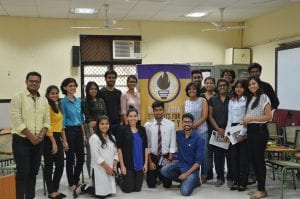Liberty in South Asia: One Universal Idea, Different Narratives
By Mohammad Anas Khan
I remember the morning of one of the Sundays in August 2018 when I was travelling from my hometown to Mumbai in a train, I sat with my copy of Tom Palmer’s ‘Why Liberty?’ reading and indulging in the idea of liberty. There was a gentleman sitting beside me whose question caught my attention. This gentleman appeared as if he came from the countryside and when he saw the OTG adaptors being sold by a vendor in the train (quite the usual sight in Indian trains), he patted me and asked about those OTG adapters. OTG adapters are one of the many tech-savvy inventions which help you connect a USB pen-drive directly to your smartphone. Quite casually I told him (we were talking in colloquial hindi) the use of those adapters and how he could use it in his smartphone. He looked quite amused and was happy that people are creating such innovative things. On seeing his interest, I decided to strike a conversation and continued to engage him in discussing the simple role of markets in creating these things. I could not use heavy worded analogies or economic theories or any Western ideas that he may be unaware of. I had to relate it to his life, to his village and to everything that he was acquainted to in his daily life. This was a semi-literate ( appeared from his difficulty in reading) man who believed in liberty. The reason I say that is because while talking about his life in the village, he mentioned many instances where he seemed to be averse to strict social diktats. He did not use the same term, he believed in incentives and also believed that the Governments throughout time have failed. All he needed was someone to tell him about alternatives, about how they can work in his village and the civil society as a way of efficient organisation.
The above experience clearly portrays how the Indian psyche or the Sub-continental psyche works. I am referring to the way people in this part of the World look at things through the prism of values. While making the case of libertarianism with academic arguments works well, discussing Friedman and Hayek creates all sorts of Magic but deep within there is a narrative that must be considered. We cannot and must not form the same reference points to advocate free society as we do in the West. Most of the times when I make this argument, It isn’t taken up well with our Western audience. One must take note that advocating liberty with regional narratives is not at all another version of patronising post-colonial detachment. It is strengthening the case for liberty by relating it to things that people in this part of the world prioritise and value.
The Subcontinent and the larger South Asia is a region with a similar history. Western-libertarians loathe the presence of the Left in this part of the World while conveniently blaming the culture, the people or the ‘morbid sensibilities of the region’. Rarely does someone look at this region, an area colonised for centuries and ask the most important question, Why does the Left enjoy so much leverage with people? There is no straight answer but what is evident from my experiences and travels is that soon after colonialism, the Left tapped into the Indian people’s psyche. This was exactly the time when the West was full with pride on its ‘benevolent despotism’ and all sorts of economic analysis of Colonialism. The Leftists quite conveniently conflated Colonialism with Capitalism and made their case as the ‘saviours of the poor.’ That was a missed opportunity for classical liberals in India.
I do not wish to dig much history to make a case but the solution to the problem lies in the acceptance of a history which we choose to ignore. The libertarian movement is still a cosmopolitan confined (with few exceptions) culture in South Asia. We approach the stage with our arguments on ease of doing business which in turn reflect on the poor citizen as more inequality and cronyism. This can be an issue of semantics as well. Our positioning has been such. We need to derive our narrative of liberty from within our own psyches and develop it while making sure that the essential principles are not compromised. I believe with a firm conviction that liberty is about principles and those Universal principles must not be wrapped in a certain time and space in history. And that must not be cemented as a yardstick to use everywhere. There must be a paradigm shift to approach a region whose population still lives in rural centres. For example, agriculture is a prevalent business in India and cronyism in a way has led to landless farmers, our priority must be to advocate property rights for them and to not conflate ease of doing business with only the elite Industrialist. Our positioning in the region must be based on issues that our people prioritise and not the ones that the West wants us to. It is here that I seek the West to acknowledge that Universal Liberty will be wrapped in regional narratives and no one has a claim greater to it. Acceptance and only acceptance of difference in approaching the principles will help us in taking forward the libertarian movement we so dearly love.
The article was previously published on Spontaneous order.

